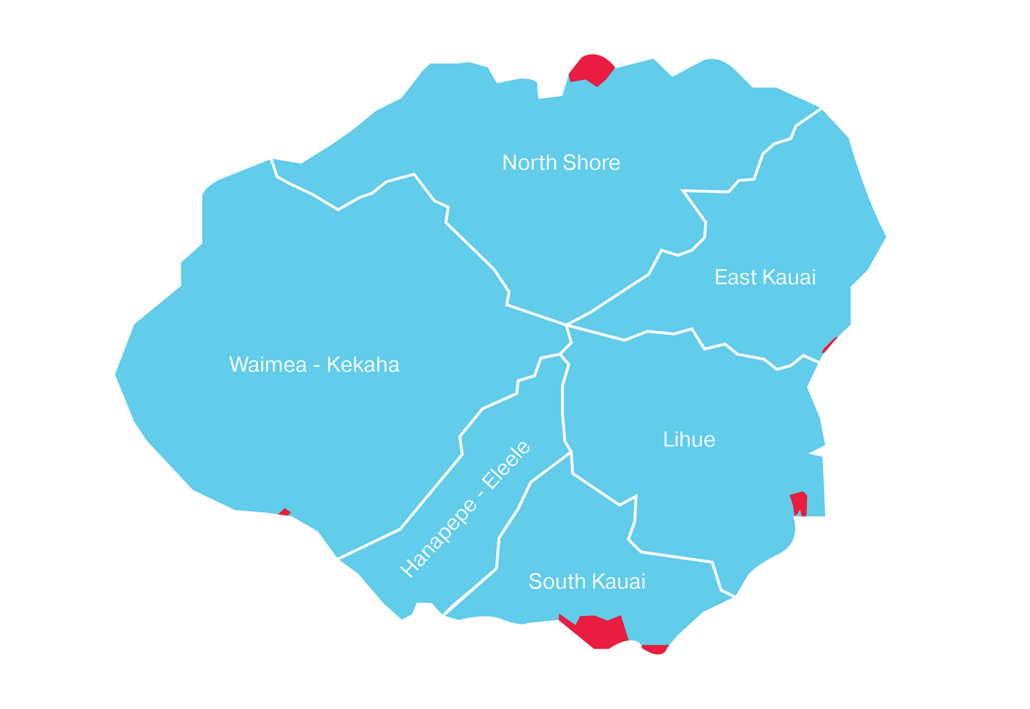Life in the travel industry is constantly fluctuating. Running a vacation rental business requires keeping up to date on evolving guest travel and spending patterns, but in Hawai’i there are some extra challenges – like remaining mindful of how this $17 billion industry can sometimes overshadow the needs of native Hawaiians, and make affordable housing difficult, or even impossible, to find. The highly controversial Senate Bill 2919 was introduced in January to allegedly help mitigate this growing housing crisis in Hawai’i by giving counties the authority to regulate short-term rental properties through zoning ordinances. Today, May 2 2024, the Hawaii legislature has approved the bill.
Zoning Ordinances, County Enforcement, and Housing Impacts
Under the provisions of the bill, individual counties have the authority to prohibit vacation rentals from operating in locations that are zoned “residential.” To put that in perspective for Kauai, virtually all of Princeville with the exception of the One Hotel and Hanalei Bay Resort at one end and the Westin at the other end, is zoned as residential. This includes such obvious “resort” properties as the Cliffs Resort. In theory, the County of Kauai could decide that Cliffs Resort vacation rentals and time shares could no longer operate as such. In reality, this seems an improbable scenario.
Short-term rentals, a la Airbnb or VRBO, started popping up in Hawaii decades ago, and have in recent years exploded in popularity. The last year has seen an unprecedented 30% increase in the number of properties being used as vacation rentals. Many visitors to the islands prefer the more local feeling of staying in a home as opposed to a hotel, and short-term rentals are more lucrative than long-term leased rentals for the property owners. Local residents have been trying for years to mitigate the effects of short-term rentals on the housing market. In 2022 Oahu attempted to ban short-term rentals between 30 and 89 days in length outside of resort areas, however a federal judge ruled in favor of the short-term rental owners, and the ban did not go into effect.

Hawai’i Governor Josh Green signed SB 2919 into law on May 2, 2024.
SB 2919 is trying to achieve something similar to the previously proposed Oahu ban, while leaving enforcement up to the individual counties, rather than the state. Now counties have the power to phase out short-term or transient accommodations operating in residentially-zoned areas, thereby opening these properties to become housing for on-island residents via long-term renting. The question for our guests and owners, then, is how might this impact the vacation rental industry on Kauai?
How Does This Affect Kaua’i?
The answer to that, it is our opinion that there will be little impact on Kauai. Kauai has had strict regulations on where short-term transient rentals are allowed to operate for the past 15 years. In 2009 the Kauai County Council passed a bill limiting the operation of short-term and transient rentals to designated Visitor Destination Areas such as Princeville, Poipu, and the eastern Kapaa coastal tourism corridor. This bill protected the already shrinking housing available to local residents, while also protecting the main industry on the island, which is tourism. Additionally, legally operating short-term rentals located outside of the VDA’s were able to obtain non-conforming use permits and therefore be grandfathered into the Kauai County bill. We would expect to see similar grandfathering provisions with SB 2919 as the counties make decisions about how to implement it.

The areas highlighted in red are designated Visitor Destination Areas where short-term rentals can legally operate.
The bill says that “transient accommodations uses may be amortized or phased out in residential or agricultural zoned areas.” What does that mean? The answer depends who you ask. Proponents of the bill say it will expand affordable housing opportunities for permanent residents. Opponents say it will destroy the vacation rental industry and deprive property owners of their rights. Both probably over-estimate the actual impact the bill will have. For the other islands, assuming they take an approach similar to what Kauai did, current vacation rental owners who are operating legally and paying their vacation rental occupancy taxes will more than likely be provided an opportunity to be grandfathered in. That’s not assured, of course, and the governor’s anti-vacation-rental rhetoric has done little to calm the fears of vacation rental owners and helps fuel the controversy surrounding the bill. Conversely an immediate influx of available long-term rentals seems equally unlikely.
So is this the end of vacations to Hawaii as we know them, as those against the bill are predicting? It seems unlikely. Perhaps the rest of the state should look to Kauai as an example of how this kind of regulation can help protect vulnerable local populations while still allowing for a flourishing visitor industry. The “Aloha spirit” many visitors are so eager to experience is what makes Hawaii different from any other beach vacation, and this cannot happen without those who know the islands best and who have their multi-cultural and multi-ethnic roots right here in the islands. Protecting residents’ ability to obtain affordable housing is something we don’t feel threatens the vacation rental industry as a whole.
More Information
For those interested in a deeper dive into these important questions that will help shape the future of Hawai’i, we recommend the following resources.
